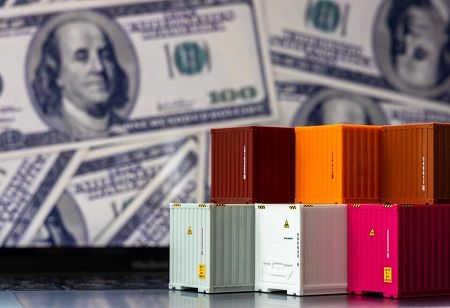
- US urges Vietnam to reduce the use of Chinese tech components.
- Vietnam explores boosting local parts production for Apple, Meta.
- Cutting Chinese reliance may strain Vietnam-China trade ties.
Reuters noted that Vietnam has emerged as a significant manufacturing center for tech giants like Apple and Samsung, whose production processes continue to depend greatly on components produced in China. Meta and Google have contractors located in Vietnam producing products such as virtual reality headsets and smartphones.
In reply, Vietnamese officials have started discussions with local companies to promote increased utilization of locally manufactured components. Firms have indicated a readiness to adhere but caution that they will require time and technological assistance for the transition, according to one insider familiar with the talks.
The Trump administration had warned Vietnam of potential punitive tariffs reaching 46%, an action that could greatly limit access for Vietnamese products to their primary export market and endanger the nation's export-focused growth model.
A participant in the talks remarked that Washington had requested Vietnam “to lessen its reliance on Chinese high-tech,” as part of a larger initiative to reorganize global supply chains and, consequently, decrease US dependence on Chinese components.
The primary goal is to speed up Washington’s separation from Chinese high-tech sectors while enhancing Vietnam’s industrial capabilities. A second source mentioned that virtual reality devices are examples of products presently manufactured in Vietnam that still rely heavily on Chinese technology.
All sources highlighted that although the US has made extensive requests for Vietnam to decrease its dependence on China, cutting back on the Chinese high-tech component in exports is viewed as a key goal.
In 2024, China sold approximately US$44 billion in technology goods to Vietnam, encompassing electronic parts, computers, and mobile devices, accounting for about 30% of its overall exports to the nation.
In that same year, Vietnam exported tech goods valued at US$33 billion to the US, making up 28% of its overall exports to the American market. Both numbers are increasing, based on Vietnamese customs data.
Also Read: China Exports 'Made in India' Electronics to US, West Asia
The US has also pressed Hanoi to tackle the trans-shipment of Chinese products to the US labeled falsely as “Made in Vietnam” to take advantage of lower import taxes—a practice Vietnam is said to be working on.
Although Vietnam has progressed in developing its industrial base with local suppliers, industry experts indicate that it remains behind China's advanced supply chains and cost-effectiveness.
"Vietnam is about 15–20 years behind China in somewhat fully replicating its supply chain scale and sophistication, but it's catching up fast, especially in key sectors like textiles and electronics," said Carlo Chiandone, a Vietnam-based supply chain expert.
However, abrupt changes in long-standing manufacturing methods might jeopardize Vietnam’s fragile ties with China, which is still a significant investor and a geopolitical issue for the Southeast Asian country.

